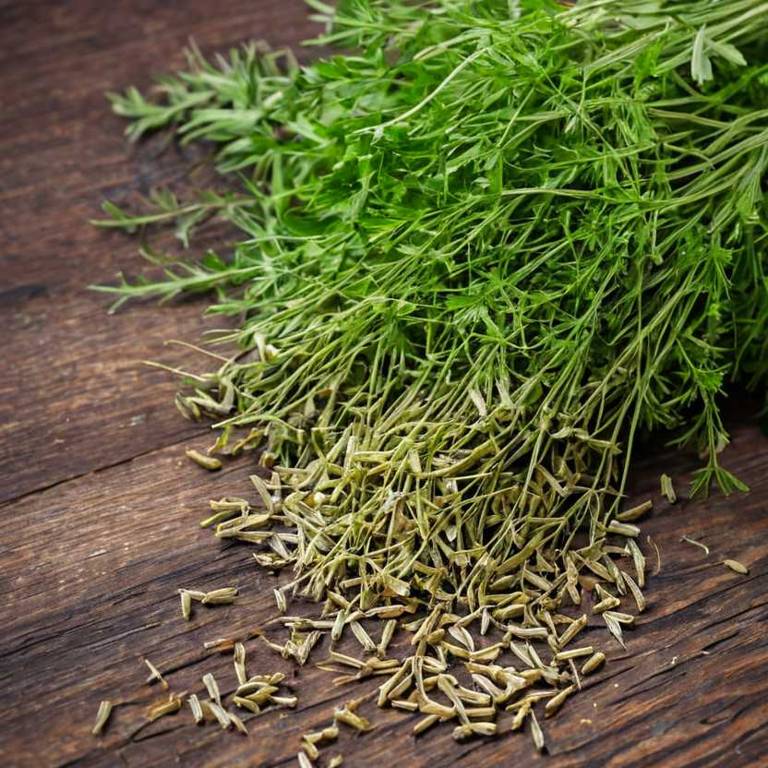By Leen Randell
Updated: Jul 05, 2024
What Are The Medicinal Properties Of Foeniculum Vulgare (Fennel)?

Foeniculum vulgare, also known as fennel, has health benefits such as improving digestion, reducing inflammation, and relieving menstrual cramps.
Its medicinal constituents include fenchone, aniseol, and farnesol, which have been shown to possess antispasmodic, anti-inflammatory, and antibacterial properties. Fennel can be consumed as tea, capsule, or essential oil, with the latter often used for aromatherapy. Possible side effects include allergic reactions, digestive upset, and interaction with certain medications.
Precautions should be taken by pregnant women and individuals with certain medical conditions, such as epilepsy, before using fennel.
This article explains the health benefits, active constituents, medicinal preparations, possible side effects, and precautions related to Foeniculum vulgare.
- What are the health benefits of Foeniculum vulgare?
- What are the active constituents of Foeniculum vulgare?
- What are the medicinal preparations of Foeniculum vulgare?
- What are the possible side effect of using Foeniculum vulgare improperly?
- What precautions to take when using Foeniculum vulgare medicinally?
What are the health benefits of Foeniculum vulgare?
Foeniculum vulgare, also known as fennel, has health benefits such as aiding digestion and relieving symptoms of irritable bowel syndrome.
Its essential oils have natural anti-inflammatory properties, which may help reduce joint pain and swelling. Additionally, fennel seeds may help lower blood pressure and cholesterol levels, contributing to a reduced risk of cardiovascular disease and other health conditions.
It is also said to have antioxidant properties.
Here's a detailed article about the 10 health benefits of Foeniculum vulgare.
What are the active constituents of Foeniculum vulgare?
Foeniculum vulgare, also known as fennel, has active constituents such as volatile oils, including anethole and fenchone, which possess carminative and anti-inflammatory properties.
Fennel seeds also contain flavonoids and phenolic acids, which contribute to its antioxidant and antimicrobial activities. Additionally, fennel is rich in mucilages, which can soothe digestive issues and provide protective effects on the gastrointestinal tract.
These constituents are responsible for its traditional uses in treating digestive disorders and other health conditions.
Here's a detailed article about the 10 active constituents of Foeniculum vulgare.
What are the medicinal preparations of Foeniculum vulgare?
Foeniculum vulgare, also known as fennel, has medicinal preparations such as essential oils, extracts, and dried fruits that are used to treat various ailments.
The essential oil is used to relieve digestive issues, bloating, and flatulence, while the extracts are used to reduce inflammation and alleviate menstrual cramps. The dried fruits are used to treat respiratory problems, such as bronchitis and coughs.
These preparations are often used in traditional medicine and herbal remedies.
Here's a detailed article about the 10 medicinal preparations of Foeniculum vulgare.
What are the possible side effect of using Foeniculum vulgare improperly?
Improper use of Foeniculum vulgare, also known as fennel, increases the chances of experiencing side effects such as dizziness, nausea, and stomach cramps.
Consuming large amounts of fennel tea or oil can also cause allergic reactions, skin irritation, and increased heart rate. Additionally, fennel may interact with certain medications, such as blood thinners, and exacerbate conditions like bleeding disorders.
As with any herbal supplement, it's essential to consult a healthcare professional before using fennel.
Here's a detailed article about the 10 most common side effects of Foeniculum vulgare.
What precautions to take when using Foeniculum vulgare medicinally?
Before using Foeniculum vulgare, also known as fennel, for medicinal purposes, you must take precautions such as consulting with a healthcare professional, especially if you're pregnant or breastfeeding.
Additionally, individuals with allergies or sensitivities to the Apiaceae family, such as those with pollen allergy, should exercise caution when consuming fennel in large quantities.
Moderate usage is recommended to avoid gastrointestinal issues and interactions with medications.
Here's a detailed article about 10 precautions to take when using Foeniculum vulgare.